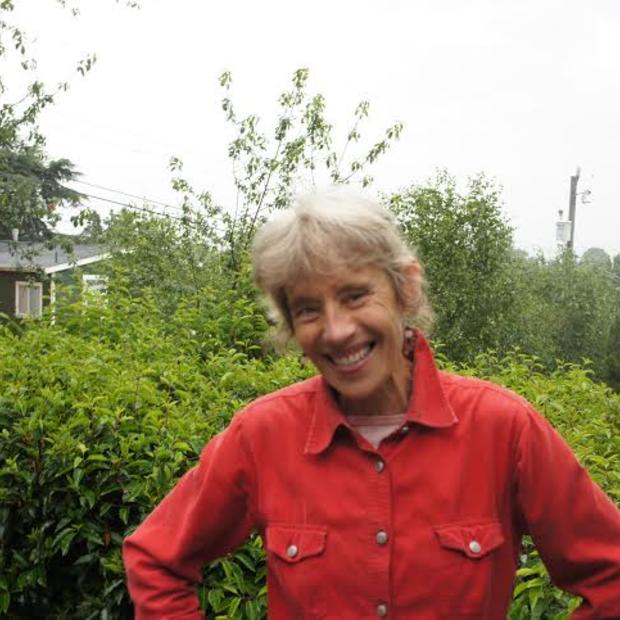This week marks the 10th anniversary of the rescue of Springer, an orphaned orca whale found alone in Puget Sound far from her family in Canada. The burning question today is how to mobilize the commitment that saved one orca, with a dangerous habit of rubbing against boats, to help all the remaining orcas whose lives are at risk. Orcas have been on the planet for tens of millions of years but they may go extinct within a hundred years.
Click here to listen to the audio version of this story.
Ten years ago this month a young female orca nicknamed Springer, was rescued in Puget Sound and returned to her northern resident pod in British Columbia. It was a trans-boundary success story. Government, non-profits, scientists, aquariums and a concerned public came together. At an anniversary celebration in West Seattle, the question was how to mobilize the same energy to ensure survival for all the region’s orcas?
Listed as endangered, the total population of southern resident orcas is estimated at 88 today, down from 300 in the 1960s. A lot of the solution, says marine consultant Fred Felleman, comes down to restoring salmon runs: “Salmon get the worst of all worlds. They suffer the cuts from the land and from the sea and if we start looking at the whole food chain, not just the salmon or just the whale but the forage fish which need the shorelines to be protected so they have the eelgrass to spawn on, I mean it’s the food chain stupid. It used to be the economy stupid — right!” Forage fish are one of the most unsung links in the chain, says Felleman. Their survival depends on shoreline management. But even in the San Juan Islands where orcas are king, “people don’t want to have a shoreline management in place or critical areas ordinance. It’s a commons only as long as we take care of it and at a certain point in time we’re going to lose it all.”
The problems orcas face in Puget Sound are well-documented. A lack of salmon especially during spring and summer, toxic PCBs that accumulate from eating high on the food chain, vessel noise, navy sonar, oil spills. “You can die from the weight of that, that ponderous weight of the multiplicity of problems the Sound faces," says Martha Kongsgaard, chair of the Puget Sound Partnership tasked with cleaning up the Sound by 2020. "But if you live there nothing will get done.”
Kongsgaard participated in the celebration. “So I think you take these stories, you take the can-do attitude of people that were in love with this vulnerable iconic creature and you do it one step at a time," she says. "It’s endless pressure endlessly applied from all regions.” If we want to save Puget Sound, says Kongsgaard, all 4.5 million people who live in the Puget Sound basin need to recognize that below the water’s beautiful surface all is not well. It will take government policy but also a recognition, says Kongsgaard, that how each of us lives on the land — how often we drive, how often we use pesticides, how often we use chemical laden plastics — makes a difference.
Recent studies show when orcas have enough food in their bellies they can better withstand vessel noise. “The challenge comes in what is the capacity of rivers in Puget Sound in particular, to recover their wild salmon runs to levels that used to be present and supported orca whales?” That’s Jacques White with the non-profit, Long Live the Kings. Kings, another name for Chinook salmon, are orcas' food of choice.
Wild fish habitat has been lost to development, dams, flood plains. It can be restored, says White, but salmon recovery depends on finding ways for wild salmon to co-exist with hatcheries, something that’s not always been successful. “If you can have a hatchery run that does not compete directly with a wild fish run it’s less likely to present a challenge for wild fish recovery.” Orca survival also depends on restoring spring salmon runs in upper watershed rivers like the Skagit and Nookack, the White River, as well as the Fraser in British Columbia. It may also mean changes in how we fish and when. “We have to do that in the context of tribal treaty rights and promises that we have made but we will have to do business differently if we want the orcas to persist in our area,” White says.
Back at the Springer celebration, event organizer Donna Sandstrom pauses to look at new signs for “The Whale Trail”, a project Sandstrom began several years ago. The signs remind people everything they do impacts survival of the resident orcas. “What shocked me into full motion is hearing they could go extinct in less than 100 years and that seemed unthinkable to me that all these whales that have been here for millions of years would actually disappear from this region.” The problems they face have been caused by humans but they can be solved, Sandstrom says. The first lesson learned from the Springer rescue is have a shared vision, even if it means working with adversaries. “Every move we made and every decision we made was towards that end.” There’s no time to lose. Orcas are losing ground. Calves are born but don’t always survive. Adolescent males and pre-reproductive femaIes are dying uncommonly young, impacted by PCBs before they can carry on the species.
Credit to CTV News for Springer audio.
Green Acre Radio is brought to you with support from the Human Links Foundation. Enginreering by CJ Lazenby. Ideas? Write us at greenacre@jackstraw.org.



